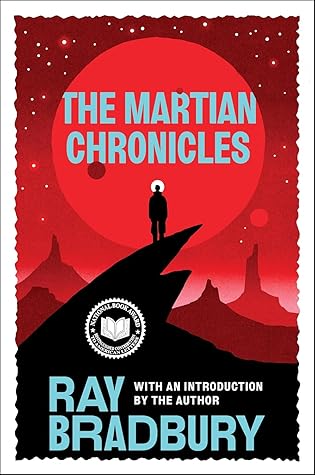More on this book
Community
Kindle Notes & Highlights
During the next few years I wrote a series of Martian pensées, Shakespearian “asides,” wandering thoughts, long night visions, predawn half-dreams. The French, like St. John Perse, practice this to perfection. It is the half-poem, half-prose paragraph that runs as little as one hundred words or as long as a full page on any subject, summoned by weather, time, architectural facade, fine wine, good victuals, a view of the sea, quick sunsets, or a long sunrise. From these elements one upchucks rare hairballs or a maundering Hamlet-like soliloquy.
“The Martians discovered the secret of life among animals. The animal does not question life. It lives. Its very reason for living is life; it enjoys and relishes life. You see—the statuary, the animal symbols, again and again.” “It looks pagan.” “On the contrary, those are God symbols, symbols of life. Man had become too much man and not enough animal on Mars too. And the men of Mars realized that in order to survive they would have to forgo asking that one question any longer: Why live? Life was its own answer. Life was the propagation of more life and the living of as good a life as
...more
They blended religion and art and science because, at base, science is no more than an investigation of a miracle we can never explain, and art is an interpretation of that miracle.
Janice lifted a matchbox of food pills, calculating the totals of things carried in those high-axled, tall-bedded wagons. For each man, each woman, incredible tonnages! Hams, bacon slabs, sugar, salt, flour, dried fruits, pilot bread, citric acid, water, ginger, pepper—a list as big as the land! Yet here, today, pills that fit a wristwatch fed you not from Fort Laramie to Hangtown, but all across a wilderness of stars. Janice threw wide the closet door and almost screamed. Darkness and night and all the spaces between the stars looked out at her.
plate of glass broken—laughter. Then silence. He turned. The young woman sat at the tiller bench quietly. Her wrists were thin as icicles, her eyes as clear as the moons and as large, steady and white. The wind blew at her and, like an image on cold water, she rippled, silk standing out from her frail body in tatters of blue rain. “Go back,” she said.
Dawn showed faintly in the east. Among the ruins, one wall stood alone. Within the wall, a last voice said, over and over again and again, even as the sun rose to shine upon the heaped rubble and steam:


